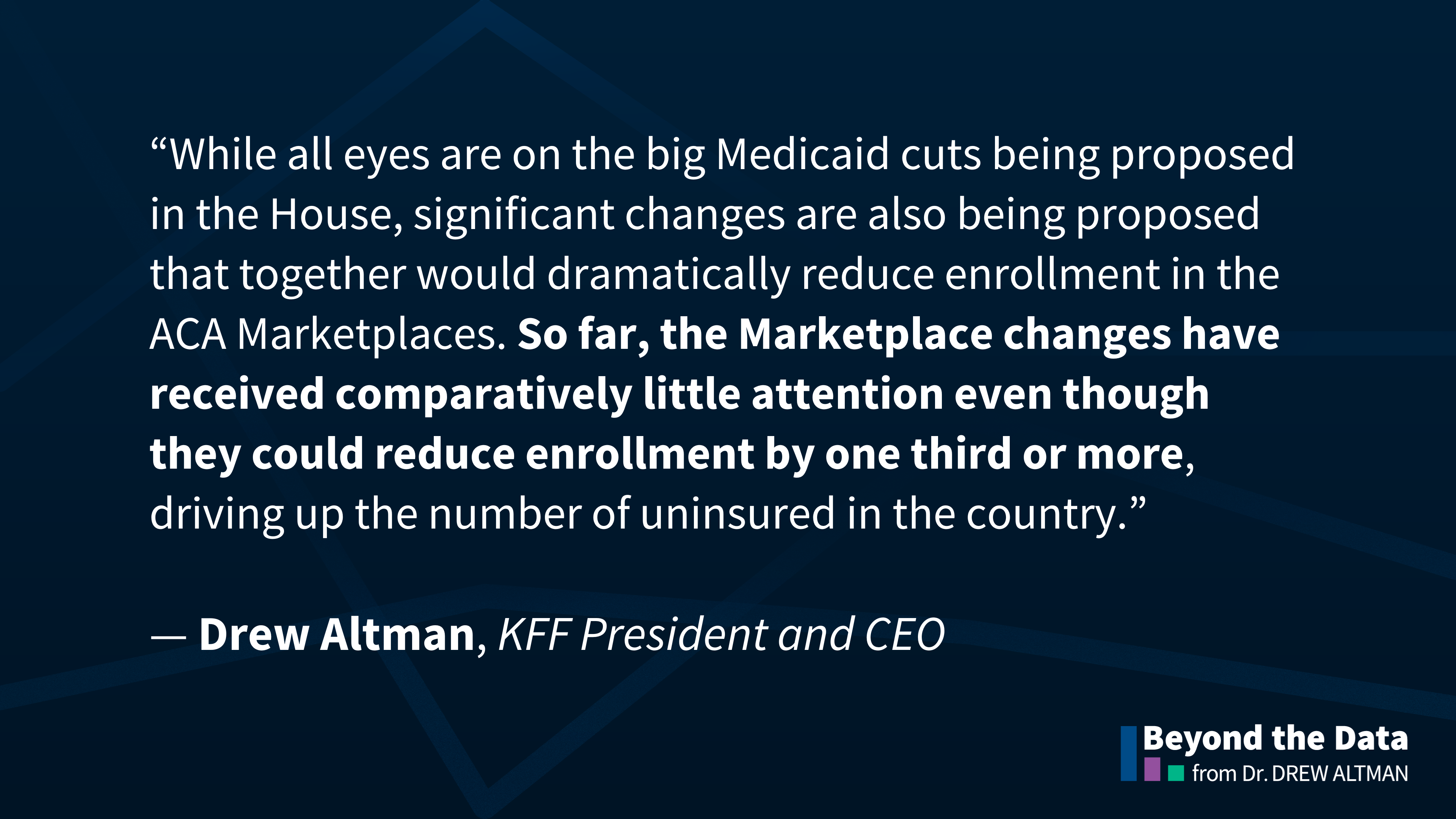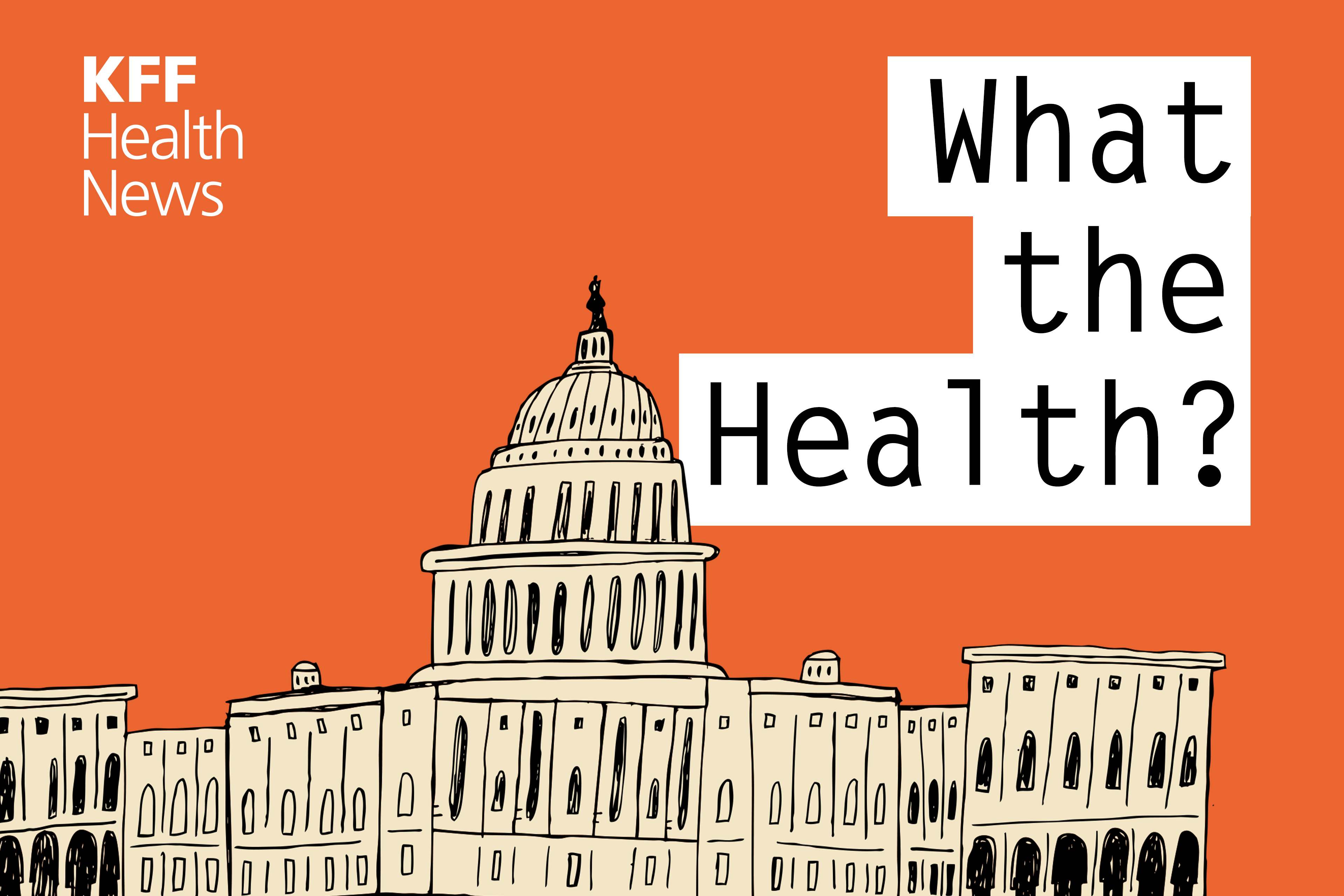Loss of the ACA Could Greatly Erode Health Coverage and Benefits for Women
This brief examines what the loss of the Affordable Care Act (ACA) would mean for women's coverage and access to health care.
The independent source for health policy research, polling, and news.
KFF’s policy research provides facts and analysis on a wide range of policy issues and public programs.
KFF designs, conducts and analyzes original public opinion and survey research on Americans’ attitudes, knowledge, and experiences with the health care system to help amplify the public’s voice in major national debates.
KFF Health News is a national newsroom that produces in-depth journalism about health issues and is one of the organization’s core operating programs.
This analysis of insurers’ initial rate filings for Affordable Care Act Marketplace plans in all 50 states and DC finds the median proposed increase for 2026 is 18%, more than double last year’s proposed increase. The analysis also shows proposed rate changes by state and insurer.

President and CEO Drew Altman shows how proposals contained in the House reconciliation bill could result in a one-third reduction in ACA Marketplace enrollment. “While all eyes are on the big Medicaid cuts being proposed in the House,” he writes, “significant changes are also being proposed that together would dramatically reduce enrollment in the ACA Marketplaces.”

Choose which emails are best for you.
Sign up here
This brief examines what the loss of the Affordable Care Act (ACA) would mean for women's coverage and access to health care.
As the Trump administration reaches the end of its first term, this issue brief considers the landscape of approved and pending Section 1115 Medicaid demonstration waivers under this administration and how the November 2020 presidential election may impact this landscape.
This data note presents the latest state-level data about nonelderly Medicaid adults who have disabilities but do not quality for SSI and considers the implications for their continued coverage if the ACA expansion is invalidated by the Court.
As COVID-19 cases rise across much of the country, most Americans think that the president is intervening with the public health agencies working to address the pandemic, the latest KFF Health Tracking Poll finds.
The repeal of the ACA could mean loss of Medicaid coverage for up to 15 million that were enrolled in the ACA Medicaid expansion group prior to the COVID-19 pandemic; however, repeal could also mean significant changes to Medicaid prescription drug policy with implications for state and federal spending for prescription drugs for non-expansion Medicaid enrollees.
In this perspective published by the Washington Post, KFF Executive Vice President for Health Policy Larry Levitt explains why the popular Affordable Care Act provisions that ensure people with pre-existing conditions can access affordable health insurance can't easily be preserved if other related provisions are overturned.
In an Axios column, Drew Altman discusses how this election year health isn’t a single issue -- but several -- and Joe Biden has the edge over President Trump on all of them, even as opposition to the ACA remains popular with Trump’s base.
The nomination of a new Supreme Court justice has placed heightened scrutiny on what President Trump’s administration would do to continue the Affordable Care Act’s protections for people with pre-existing conditions if the Supreme Court invalidates the law.
As the Senate considers Judge Amy Coney Barrett’s nomination to the Supreme Court, the October KFF Health Tracking Poll finds a large majority (79%) of the public do not want the Court to overturn the Affordable Care Act’s protections for people with pre-existing medical conditions, up 17 percentage points since last year when 62% held…
This brief summarizes premium rate filings in all 50 states and the District of Columbia and finds the majority of rate changes for 2021 are moderate, with increases or decrease of a few percentage points. Insurers say the COVID-19 pandemic is putting both upward and downward pressure on health costs in 2021.
© 2025 KFF



